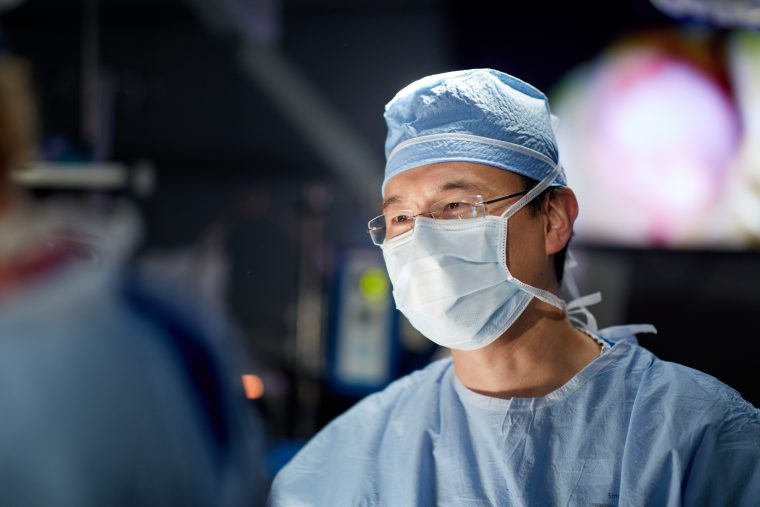News
WU launches new interdepartmental Brain Tumor Center
 Courtesy of Albert Kim
Courtesy of Albert Kim Albert H. Kim MD. PhD. will be the next director of the newly established Brain Tumor Center
Washington University announced its new Brain Tumor Center, created through a collaboration between the Washington University School of Medicine (WUSM) and BJC’s Siteman Cancer Center, March 29.
Clinicians at the new Center will focus on providing patient care and researching innovative technologies such as proton therapy, brain mapping and laser ablation. The Center will eventually be housed at WUSM’s new neuroscience building at the Cortex Innovation Community, which will be the largest single new building in the school’s history.
Dr. Albert H. Kim, a professor of neurosurgery, genetics, neurology and developmental biology, was named the director of the new center.
“The vision [of the Center] is to deliver what would be considered the number one brain tumor center-type care rapidly to people from wherever they come, and then to offer them therapies that they’re not going to see anywhere else,” Kim said.
The center is the result of years of recruiting clinicians and researchers with brain tumor research experience at Siteman. With more formal organization and infrastructure, clinicians are hopeful that they will make extensive progress in treating and curing brain tumors.
“[Before the creation of the Center] we had more informal groups where we would come together and we would synergize and talk about brain tumors, think about how we can develop new ideas to test in the lab,” Kim said. “But it was never as much a formalized structure as it is now.”
According to Dr. Gregory Zipfel, chair of the Department of Neurosurgery, preparations for the Brain Tumor Center have been in the works for over 10 years.
“There’s been a big build-out on the academic side,” Zipfel said. “When we put it all together, the clinical pieces that we’re putting together with the hospital and the basic science research pieces that we’re putting together across many departments and the School of Medicine, we realized we had an opportunity to formalize and establish a formal brain tumor center.”
According to Zipfel, collaboration with other departments within WUSM will be a major element of the center. This includes the departments of radiation oncology, pediatrics, neurology, pathology and radiology. “All of these entities are backing and are an integral part of the Brain Tumor Center,” he said.
The two major fronts on which the center seeks to expand are delivering patient-centric clinical care and testing new procedures and technologies.
“I would like this to be a seamless process for the patients,” medical director at the Pituitary Center Dr. Julie Silverstein said. “Regardless of the type of tumor they have, when they are first entered into our system, it’s very clear what’s going to happen…They’re given access to state-of-the-art technology and treatments and clinical trials and guided through the process seamlessly.”
The center currently has 25 active clinical trials and will seek progress on a number of new experimental procedures and ideas including laser therapy and applications of focused ultrasound.
“We have a number of venture programs that we want to push and develop new ideas for therapies and then get to patients in clinical trials,” Kim said. “My colleagues are able to do that because I have a lab that studies glioblastoma mechanisms. So if you have an idea, you can actually bring it to a human being.”
Doctors at the center see its establishment as an opportunity to build on existing work and make treatment more effective and expedient.
“This is going to help really improve the care of patients with brain tumors, whether or not malignant or benign, in terms of creating a multi-disciplinary clinic and approach for these patients,” Silverstein said. “I think it’ll also allow us to increase the research that we’re doing and really put us higher up on the national, international landscape.”
“In some sense, I want to put myself out of business by having new therapies that are less invasive and more effective,” Kim said.
Kim is hopeful that the Brain Tumor Center will become one of the leading medical centers in the country in the treatment of brain tumors.
“I think because of our special combination of people, technology and science, I think we can really move the needle and cure people,” Kim said. “I mean this in the near future; I think that’s the magic honestly.”
